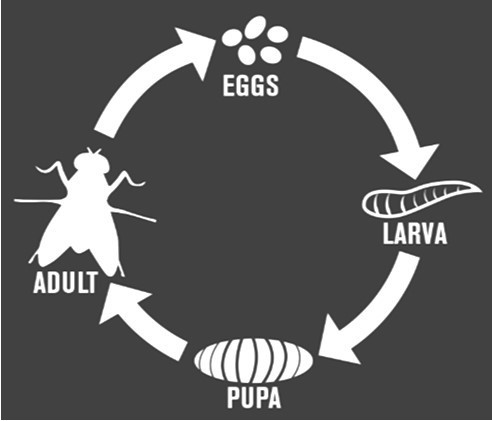Every summer, the hottest topic within the beef industry is Fly Control. Since flies have become resistant to all of the toxic chemicals that were created to control them, fly problems have done nothing but get worse over the last 80 years.
Thought Question: WHO took care of horn flies and other cattle parasites 100 years ago? No one! Animals that did not have sufficient genetic resistance to parasites did not survive or reproduce. That’s nature’s way! That’s survival of the fittest! And then man came along thinking he could improve on nature’s way. Man, in all his wisdom, has done nothing but create inferior cows and superior parasites.
As discussed in The Horn Fly Problem and How to Solve the Horn Fly Problem, the only way we can truly solve the horn fly problem is through genetics. We need to produce cattle that have a bred-in genetic resistance to horn flies. This is NOT difficult! Today, I am going to briefly discuss a simple, non-toxic way to minimize horn fly problems. Some forward-thinking cattlemen have been doing this for the past 30 to 40 years.
First… let’s review the life cycle of the horn fly. Adult horn flies spend their life sucking blood from the host animal. When the host animal lifts its tail to poop, the female flies will leave the host animal just long enough to lay eggs in the fresh manure. The eggs hatch within one day. The resulting larvae feed for three to five days in the manure. At that time, they migrate into the soil below the manure pat to pupate. Depending on weather conditions, the egg-to-adult life cycle of the horn fly is completed in 10 to 20 days.

What happens if the emerging horn flies cannot find a host animal? They die! Those who are implementing rotational grazing practices are essentially outrunning the dreaded horn flies. But wait, there’s more…
Those who practice rotational grazing are also increasing their pounds and profit per acre by a whopping 50 to over 200 percent! WOW! This is a no-brainer! So, why do less than 5% of cattlemen implement rotational grazing? That’s a good question! Is it possible that some people would rather fail doing what they’ve always done than succeed if success requires doing something different?